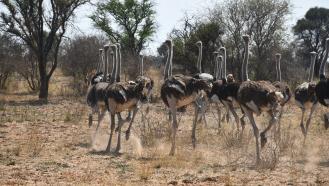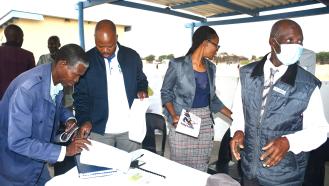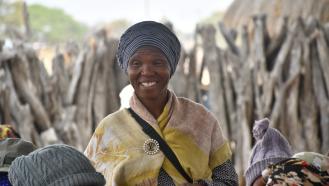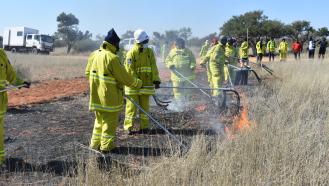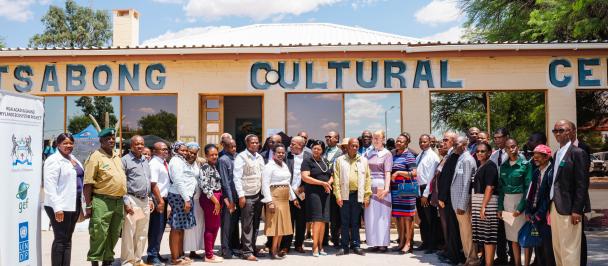Environmental and Social Management Framework (ESMF)
Disclosed for Public Review and Comments
December 19, 2023
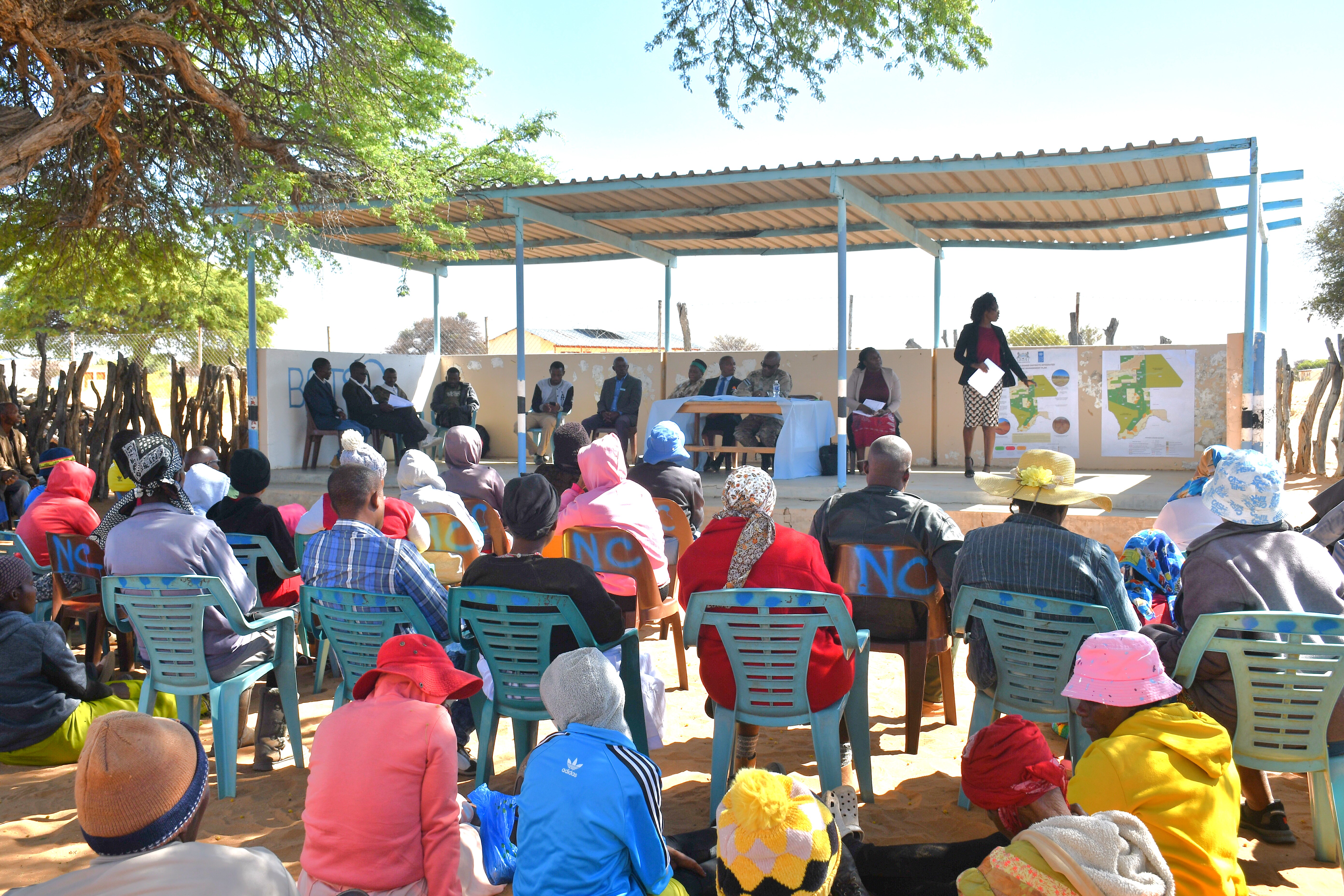
This is the Environmental and Social Management Framework (ESMF) for the GEF-UNDP Project titled Managing the human-wildlife interface to sustain the flow of agro-ecosystem services and prevent illegal wildlife trafficking in the Kgalagadi and Ghanzi Drylands Ecosystem (KGDEP). The KGDEP consists of 4 components: Component 1. Coordinating capacity for combating wildlife crime (including trafficking, poaching, and poisoning) and enforcement of wildlife policies and practices at district, national, and international levels; Component 2. Incentives and systems for wildlife protection by communities and increasing financial returns from natural resource exploitation and reducing human-wildlife-conflicts (HWC); Component 3. Integrated land use planning (ILUP) in the conservation areas and sustainable land use management (SLM) in communal lands, securing wildlife migratory corridors, and increasing productivity or rangelands respectively, reducing competition between land uses and increasing ecosystem integrity of the Kalahari ecosystem. Component 4. Gender mainstreaming, traditional ecological and scientific knowledge management, monitoring and evaluation (M&E), and ensuring the dissemination of project lessons. The project is being conducted in two districts of western Botswana: Ghanzi and Kgalagadi, covering approximately is 224,850 km2.
The application of the UNDP Social and Environmental Screening Procedure (SESP) identified 17 potential social and environmental risks associated with this Project. Seven of these risks are ranked as Substantial and ten are rated as Moderate. The overall rating of the project from a UNDP and Government of Botswana standpoint is Substantial. This report lays out mitigation measures for coping with the risks that have been identified.
The objective of the ESMF and IPPF is to ensure compliance with relevant policies, including UNDP’s Social and Environmental Standards (SES), and to direct the project personnel and stakeholders during the implementation of the project in tackling the social and environmental concerns identified during the design phase. Among those, the ESMF aims to manage the Environmental & Social (E&S) impacts through appropriate mitigation measures that may arise with the implementation of the project providing specific guidance to be followed consistently with the existing policies at the local, national and international levels and the UNDP. The IPPF also aims to ensure the inclusion of vulnerable peoples into the project design, planning and implementation of planned activities to enhance the development process with full respect to the dignity, human rights, economies, and culture of vulnerable Peoples.
The draft ESMF and IPPF documents are accessible below for public review and comments.
If you have any questions or comments, please email us at enquiries.bw@undp.org
This document is open for public review and comments for the period 20 December 2023-20 March 2024.

 Locations
Locations